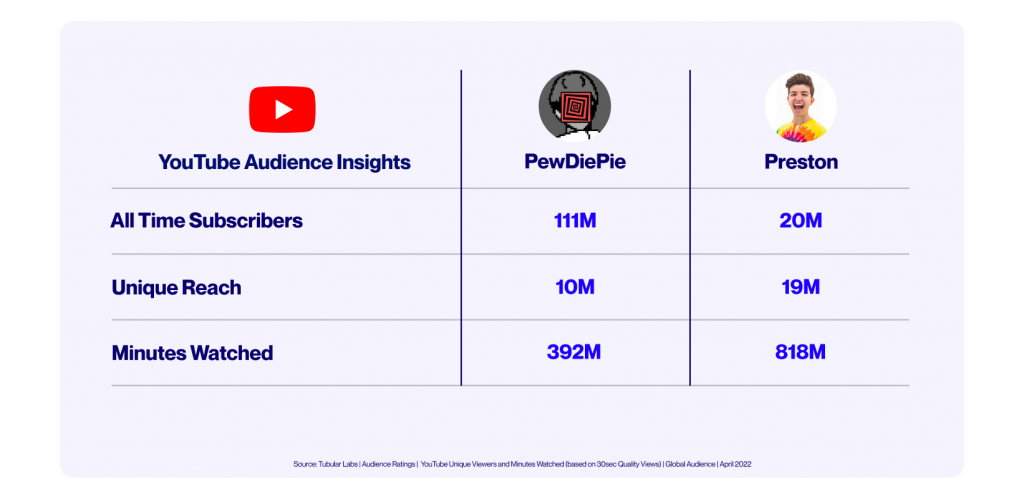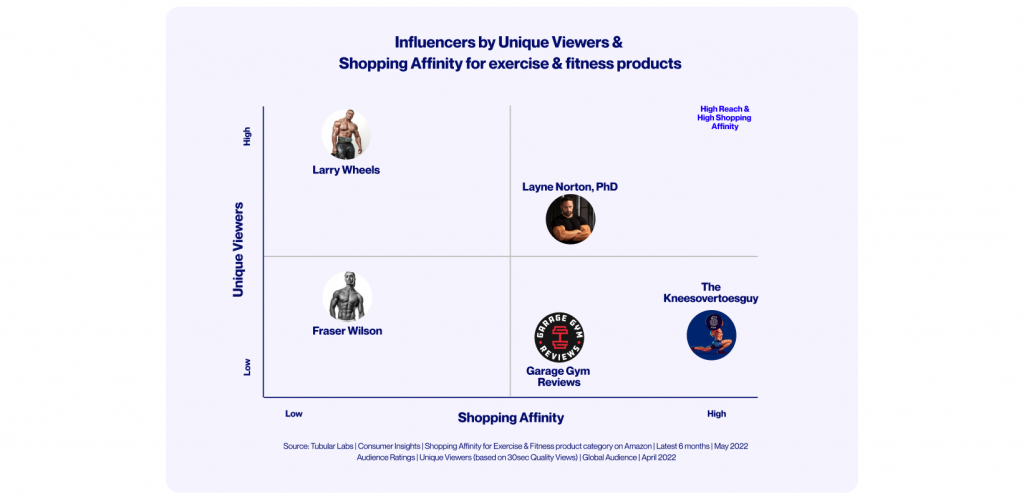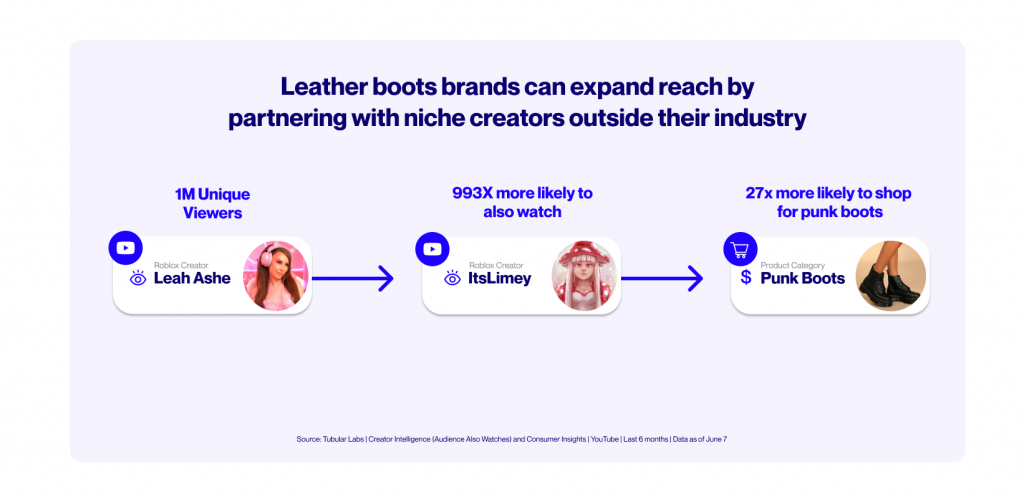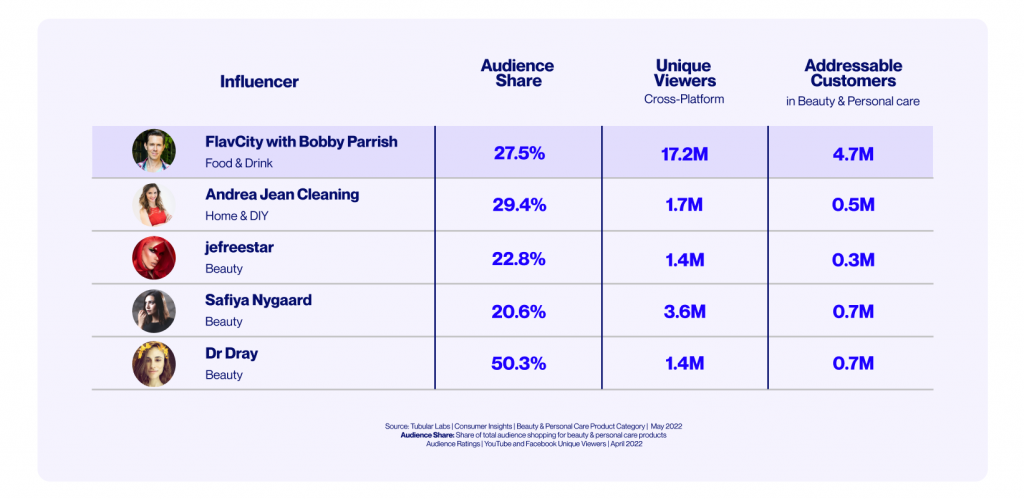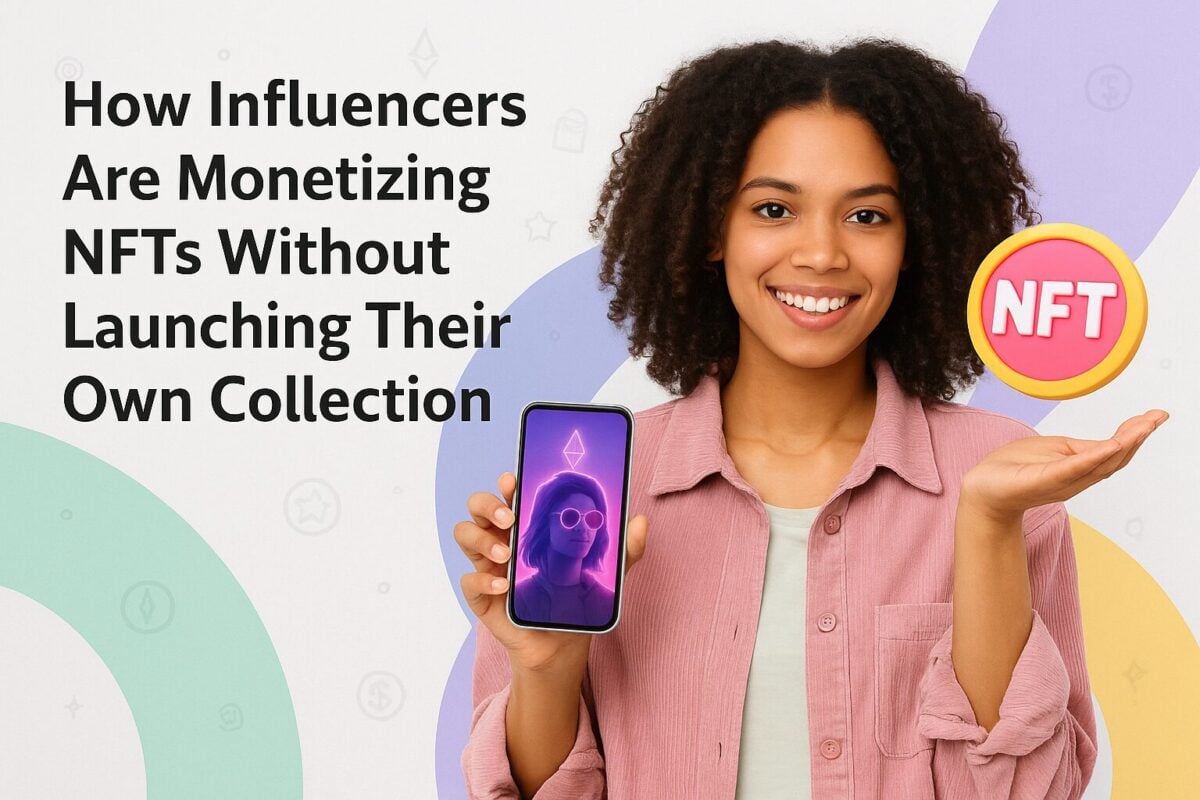Creators are the drivers fueling today’s free marketplace. It’s nearly impossible for growing brands to succeed without partnerships with influencers and/or media channels. Influencers drive commerce and advertising the way traditional forms like TV, radio, and newspapers did for decades. As a collective, creators continue to grow in power and counter media conglomerates worldwide. These shifts in the economy and technology have sparked the era of media reorganization.
In turn, marketers have bravely faced the mayhem, testing out unchartered partnerships and never-before-seen media methods.
Peter Shields, Creator Monetization Lead from Instagram remarked on his early days at a creator-centric startup in 2011:
This rings more true than ever over 10 years later. Vanity metrics such as likes & views are easy to see— but that doesn’t mean they’re valuable. If you are a wholesale retail producer reaching 10M Gen Z viewers from ages 13-17, you’re going to be way less successful and likely to spend way more money than trying to reach a smaller cohort of 1M of your target consumers.
Looking beyond likes & followers helps you avoid overpaying for ineffective partnerships and create a larger influencer portfolio that aligns with business goals.
The search for the perfect influencer:
Throughout the last decade, leading global marketers have experimented in unchartered territories and built unique social media strategies by taking innovative risks. Some didn’t go so well…like when Kendall Jenner advertised a can of Pepsi at a police brutality protest (yikes!). Others, however, broke every expectation of what we thought was possible for a paid ad, like when Charli D’Amelio recently danced her way onto the Dunkin’ menu and reportedly caused a 25% boost in cold brew sales on the day of release and a 45% sales boost the following day.
If you’re a marketer who has been spotting influencers using surface-level metrics and gut instinct, you’ve likely had similar experiences. Sometimes you partner with a massive creator and your campaign falls flat. Other times, you find someone whose face value numbers don’t look as impressive and then skyrocket your ROI!
As we travel into the age of the micro-influencer, brands have discovered the power of deeper community trust & narrowed targeting. Smaller followings often pack a bigger punch.
With over 30M+ creators in the world, there’s an endless variety of creators to choose from. Each has their unique fingerprint of follower count, community engagement, conversion rates, values, niche focus, and more. This makes it very difficult for marketers to weigh options and choose the right creators to represent their brands.
With so many options to choose from, a little bit of chaos and uncertainty are expected— but Tubular is here to help make sense of the chaos. With deeper insights, you can create a framework that helps identify the perfect influencers to build out your wider program. At Tubular, we always say — start with your KPIs.
KPIs come first
Consider your company's business goals.
How much do you want to increase brand awareness? Do you want to break into new markets? Or differentiate from your competitors?
Whatever your biggest goals are for the quarter, half year, or year — we have insights that will help you find influencers that can supercharge these initiatives. Some influencers are perfect for helping you break into new industries, while others are upper-funnel brand awareness gurus. Some drive ROI like no other ad model we’ve seen.
Get your KPIs and business priorities ready — and we will take you on a journey to look at different influencers and real-life situations when marketers need to evaluate options and choose what's best for their unique company goals.
In this piece, you’ll understand how to:
- Identify true value by going beyond likes & subscribers
- Forecast ROI with cutting-edge consumer behavioral insights
- Break into new audiences while mitigating the risk of failure
The Creator Economy is the Economy:
1. Measure Quality Rather than Quantity
Likes & views are easy to see, and that’s why people use them to measure success. But true success can’t be measured by these vanity metrics alone. If you are a wholesale retail producer reaching 10M Gen Z viewers ages 13-17 who like gaming with your newest campaign, you’re susceptible to overspend with a “pray and spray” strategy.
Measuring quality, in addition to quantity, helps you:
- Save money by partnering with influencers who pack a bigger punch
- Avoid paying for inactive subscribers
- Intentionally align influencer strategies with funnel KPIs
Go beyond the surface level and uncover the metrics you need to evaluate the potential of different partnerships.
Take a look at these gaming influencers for example:
PewDiePie is the creator with the highest subscriber count on YouTube at a whopping 111M, but only a fraction of those subscribers are actually watching his content on a monthly basis. With an estimated net worth of over $40M in 2022, partnering with the popular Swedish YouTuber would cost sponsors a pretty penny.
However, looking at the deeper insights such as Unique Reach and Minutes Watched tells a very different story. The adjacent gaming influencer, Preston, has fewer total subscribers than the legendary PewDiePie, but his numbers suggest his smaller following is fully present for his content with a whopping 94% actively engaging.
So how do you look at these metrics and choose the influencer who is right for you? Consider your KPIs. What are your goals and where in your marketing funnel needs more nurture?
For upper-level brand penetration and broad reach, you want millions to see your content perhaps for the first or second time. PewDiePie is a great option to align your name with one of the biggest names on YouTube. One of PewDiePie’s main sponsors is the energy drink brand, G Fuel. In just 3 videos, the creator has garnered over 20M views for the brand.
For the mid to low-level funnel, you are looking for audiences to show increased interest in your brand and eventually convert them into loyal consumers. Preston’s audience might be a better option for this as they watch his content for 2X longer than PewDiePie’s audience does. For truly effective lower-level funnels, marketers need to find those hard-to-see insights and reach for unique consumer behaviors that differentiate between otherwise similar audiences.
Next, we’ll look at how consumer insights can vary between adjacent influencers.
2. Understand Audience’s Consumer Behaviors
Many marketers agree that influencers with the broadest reach don’t necessarily drive the highest conversion rates. Because of this, micro-influencers and niche creators have increased in popularity because they have loyal, engaged followers who are highly likely to make a purchase when they recommend a product.
Understanding consumer behavior helps you:
- Expand into new content categories where your potential consumers are hiding
- More accurately predict the ROI benefit of partnerships
- Benchmark the success of campaigns by tracking growth in Market Share, Purchase Affinity, and Relevance
In the graph below showing influencers shopping affinity for exercise & fitness products, you can see that creator Larry Wheels, who has the highest unique viewer reach, has an audience with the lowest shopping affinity for exercise & fitness products. Larry Wheels would be a great option if advertisers are looking for upper-level brand penetration. However, for mid or low-level marketing where you want to drive conversions and nurture relationships, Layne Norton and The Kneesovertoesguy would be premier partnerships for fitness brands.
The smaller micro-influencers are tapped into niche social media communities where there is a strong sense of community and identity. People within these communities feel that their own identity is affiliated with specific brands, products, fashion, content interests, and creators.
Brands can outsmart their competition by going granular. Rather than just looking in broader categories like gaming or fitness, they can look at those that watch more niche segments like barre fitness classes or Roblox viewers who like punk-style creators.
See how going granular can benefit leather boots brands, like Dr. Martens:
Leah Ashe – a very popular female Roblox creator on YouTube, has averaged 1M unique viewers in June 2022. By checking out deeper insights like Audience Also Watches, we found that her audience is 993X more likely to also watch a smaller creator known as ItsLimey. ItsLimey is much more niche than Leah Ashe, with 218k viewers in June 2022. This small but powerful creator specifically focuses content on a fashion game within Roblox.
Tubular’s Consumer Insights revealed that this audience is 27X more likely to shop for leather punk boots than other creators. This audience would be a great lower-level funnel nurture for a brand like Dr. Martens because individuals in this community self-identify with the shared unique fashion sense that permeates ItsLimey’s audience.
3. Tap Into Creators from Adjacent Categories to Drive Growth
Many marketers get into the habit of looking for creators who are in 100% alignment with their industry. This tactic makes sense! It can feel less risky for a beauty brand to partner with beauty YouTuber James Charles than it does for them to partner with the So Tasty food channel. That said, uncovering deeper insights that reveal adjacent audience interests can help marketers identify rising talent and mitigate financial risk.
Working with creators from adjacent categories helps you:
- Reach audiences your competitors aren’t targeting
- Target adjacent audiences for upper-level brand awareness
- Drive conversions while also exposing your brand to wider audiences who have the potential to convert into loyal consumers and brand advocates
In this example, beauty advertisers could partner with food & drink or home & DIY creators who have a large share of beauty consumers within their respective audiences. With Tubular measurement, we see that 27.5% of food creator FlavCity with Bobby Parrish’s audience shops for beauty products. Comparing this number to Unique Viewers, you can justify there are nearly 4.7M addressable customers in beauty and personal care. Numbers like these help you predict the ROI impact and persuade decision-makers to approve out-of-the-box partnership choices.
While other beauty brands continue to pursue the classic beauty YouTuber or celebrity endorsement, you can feel confident that your choice will not only reach a large target audience but also reach new customers. Targeting a cross-over audience of foodie-beauty fans presents a higher probability of new conversions as it exposes non-beauty viewers to your brand name for upper-level funnel awareness.
For far too long, we’ve watched some of the world's leading brands and marketers rely on surface-level measurements to identify, partner, and measure influencers. Oftentimes, this means companies have less negotiating power and take significant financial risks.
We’re here to remove the ambiguity from partnership decisions and negotiations. You want to get exactly what you’re paying for. With in-depth measurements of consumer behaviors & content preferences, you can more accurately forecast the outcome of specific partnerships and expect certain returns on investments.
Tubular believes marketing engines should be in complete alignment with business goals. That includes your influencer program.
It all comes back to: What are your KPIs?
- Decrease client turnover by 20%?
- Increase ROI 30% YOY?
- Build and nurture customer advocacy?
- Optimize expense management?
With easy access to those otherwise hard-to-see metrics, you can find influencers who fit into a tighter budget or help drive customer satisfaction by maintaining a close connection to niche communities of your consumers.
With these insights, you can actually track and monitor brand penetration efforts. For example, you can monitor the before & after of in-depth insights like Market Share (which tells you what percent of a creator’s audience shops for your brand) to benchmark success and validate spending to decision-makers.
Choosing influencers with qualities that are aligned with your business goals means you increase brand penetration and drive conversions like never before.
If you’re interested in gaining insights like these and more — click here to request a free demo with Tubular.
Author Bio:
Frequently Asked Questions
What is meant by creator economy?
The creator economy is defined as a class of businesses built by 50 million independent content creators, curators, and community builders. This includes social media influencers, bloggers, and videographers. It also includes software and finance tools to help with growth and monetization.
What is the value of the creator economy?
The value of the creator economy in 2022 is said to be over $104 billion dollars, according to Influencer Marketing Hub.
Who coined the term creator economy?
In 1971, Herbert Simon predicted that “a wealth of information creates a poverty of attention and a need to allocate that attention efficiently.” That scarcity turned out to be engagement.
When was the creator economy born?
Stanford University’s Paul Saffo first suggested that the creator economy came into being in 1997 as a type of “new economy.” Early creators in the economy worked with animations and illustrations, but there was still a lack of infrastructure to enable them to generate revenue.
